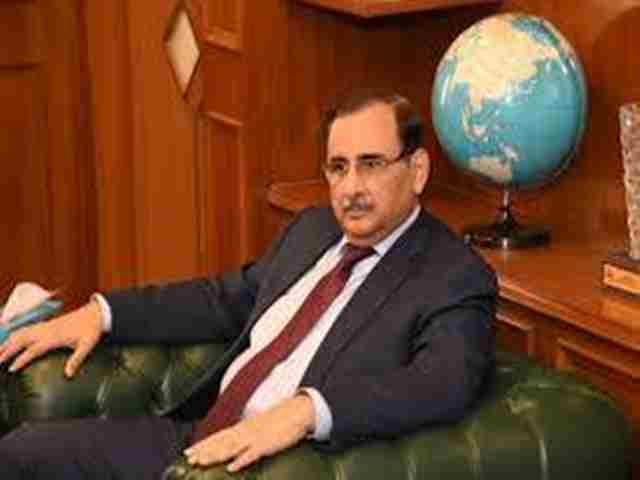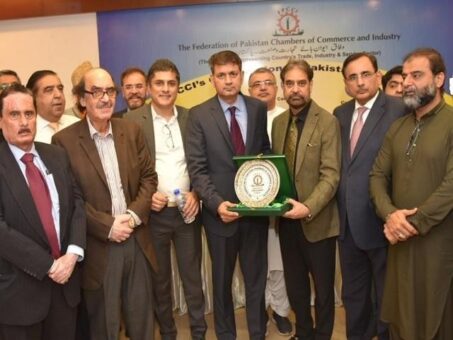KARACHI: The Federal Board of Revenue (FBR) will add more scanners for digitization of customs clearance, said Wajid Ali, Chief Collector, MCC Appraisement (South) Karachi.
Addressing at Federation of Pakistan Federation of Pakistan Chambers of Commerce and Industry (FPCCI) on Friday, he said that more container scanners will added on a regular basis and customs is moving towards best-practices in digitalization; however, accepted that more work needs to be done to facilitate the traders.
READ MORE: FBR promotes Customs officers to BS-19
Agreeing to the top demand of FPCCI, Wajid Ali promised that the online complaint mechanism will be launched at Federation House to address all the issues, concerns and complaints of the business community pertaining to customs.
It will not only promote the liaison between the customs department and the business community; but, will also expedite the complaints resolution process.
The Chief Collector informed the session that Input/Output Co-efficient Organization (IOCO) has determined the quotas for the erstwhile FATA and PATA region; hence, its misuse will be eliminated.
He also committed that refunds will be swiftly processed to facilitate the traders. He added that National Single Window (NSW) will contain HS Codes in 12 digits.
READ MORE: FBR drafts ID evidence rules to subscribe Pakistan Single Window
Wajid Ali has asked FPCCI to propose the inclusion of its representative into the classification committee and apprised that Alternative Dispute Resolution Committee (ADRC) will also be refreshed.
He also welcomed the recommendations of appointing a focal person for FPCCI for the greater good of business community; more proactive 90-day advanced rulings and effective implementation of protections covered under SRO 598 to already issued Bill of Lading and Letter of Credit.
Earlier, Irfan Iqbal Sheikh, President FPCCI, discussed the issues and anomalies endured by the business community with top customs officials in a detailed session at Federation House.
He enlisted that lack of regulation of container terminals; misuse of erstwhile FATA and PATA exemptions; delay in refunds processing; unfair demurrages charges; insufficient investment into digitalization & container scanners; inadequate diversification in HS and PCT Codes; overlooking cascading principle on raw materials and irregular consultative process with the trading community’s stakeholders are the top impediments in the smooth functioning of the customs operations.
READ MORE: Trade Information Portal of Pakistan
Sheikh demanded formation of a regulatory authority for container terminals for a better working environment between traders and container terminals.
He also expressed his profound concerns over misuse of erstwhile FATA and PATA exemptions as the phenomenon has disturbed the even-playing-field.
Sheikh also expressed his dismay over paying technology upgradation and container scanner charges since the year 2005; but, no wide-scale upgradation has taken place as yet. He also called upon customs authorities to adopt 16-digit HS Codes to cater to the diverse imports.
Engr. M. A. Jabbar, Vice President FPCCI, pointed out that tariff rationalization should be an ongoing process to adapt to the ever-changing trade & industry environment and proposed that member policy of FBR should keep consulting the stakeholders.
READ MORE: PSW to link 27 banks for trade facilitation
Shabbir Hassan Mansha, VP FPCCI, demanded a focal person for FPCCI and also apprised the session that the business community faces delays in refunds as the pay orders are encashed without informing the traders; and, critical working capital is blocked due to the practice.
Saqib Fayyaz Maggo, Convener Customs FPCCI, highlighted the lack of uniformity in the disposal of cases under Sections 81, 25A, 25D; on top of the excessive adjudication cases and ever-increasing demurrages charges.



